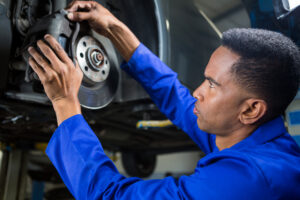By H&H Admin
For senior citizens, being able to drive represents freedom but as we get older our abilities to drive change as well.
Senior citizens are at risk of declining cognitive and motor skills, and should you notice that your parents’ car has an increasing number of scratches and dents, you may have something to worry about. As an adult child, how can you set your mind at ease about your aging parent’s ability to drive?
Here are a few ways you can assess their driving skills.

Ride Along For An Informal Driving Assessment
A non-intrusive and polite way to check out your parents’ driving abilities is by taking a drive with them. Just get into the car and observe how they get about.
Look out for the use of seatbelts, indicators and observe if they check their side mirrors before changing lanes. Also, note their speed and attitude behind the wheel. Are they confident, nervous, or aggressive? Do they notice and adhere to the rules of the road? Similarly important, do they seem to struggle with their eyesight or is their vision seemingly alright?

Keep Fit
Encourage your aging parents to stay as physically active as possible. Exercise improves strength and flexibility which translates to a better and safer driver. Driving is a physical activity and exercise makes it easier to look over one’s shoulder to check blind spots, turn the steering wheel, park and reverse.
Exercises such as walking and stretching all work together to improve mobility.

Install Vehicle Safety Devices
There are a number of inexpensive devices adults can install into their aging parents’ vehicles for added peace of mind. These include larger-than-standard side mirrors to help eliminate blind spots, larger rear-view mirrors, front and rear park sensors, or booster seats to help shorter drivers see better.

Stick To Regular Vision and Hearing Tests
Some senses decline with age such as vision and hearing, both of which are necessary for safe driving. Remind senior drivers to keep their headlights, windscreens and mirrors clean and to turn up the brightness on the instrument panel. Common age-related vision impairments such as glaucoma, macular degeneration, and cataracts can have long-term devastating implications if not identified as early as possible.
Should an elderly driver show signs of hearing loss, a good hearing aid may help the situation. However, remind senior drivers to be aware when opening the windows when driving as the draft impair a hearing aid’s effectiveness.
Encourage your aging parents to stick to their health care tests and examinations, even if they feel fine at the time.

Manage Medication
Be aware of the medication your parents are taking and ensure that you and them understand how these can affect their ability to drive as some pain killers may cause drowsiness.
Prescription marijuana can also have adverse effects on an elderly person’s ability to drive. If your aging parent needs to be mobile while on medication, consult their health care provider and discuss alternatives.

Drive At Certain Times Of The Day
Elderly drives can improve their safety by driving only when there is good weather, on quiet roads, during daylight hours, in off-peak traffic times and in familiar places.
Asides from road and weather conditions, adult children should remind their parents not to drive when they are upset, angry, or tired.

Accept Your Limits
As difficult as it may be for your parents to accept that they are indeed aging and that their bodies are changing, it is important that you do your best to help them understand and accept their mental and physical limitations.
For example, arthritis can make holding the steering wheel or changing gears difficult. In such instances, opting for a vehicle with an automatic transmission may be the answer but a visit to an occupational therapist should also be considered.

It may be difficult to have a conversation with your parents about their declining driving abilities, but it is essential for their safety and that of other road users as well as your own peace of mind.






